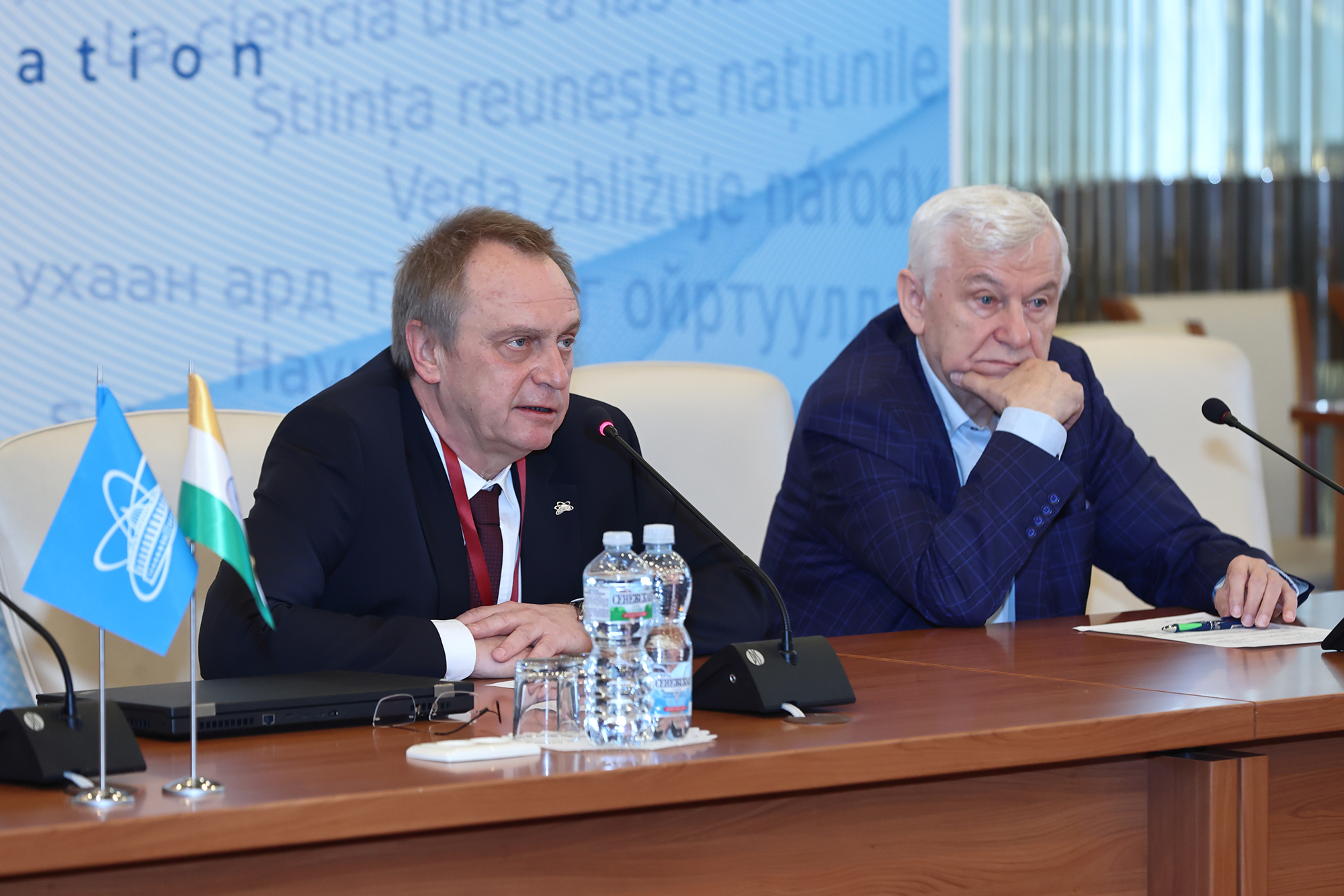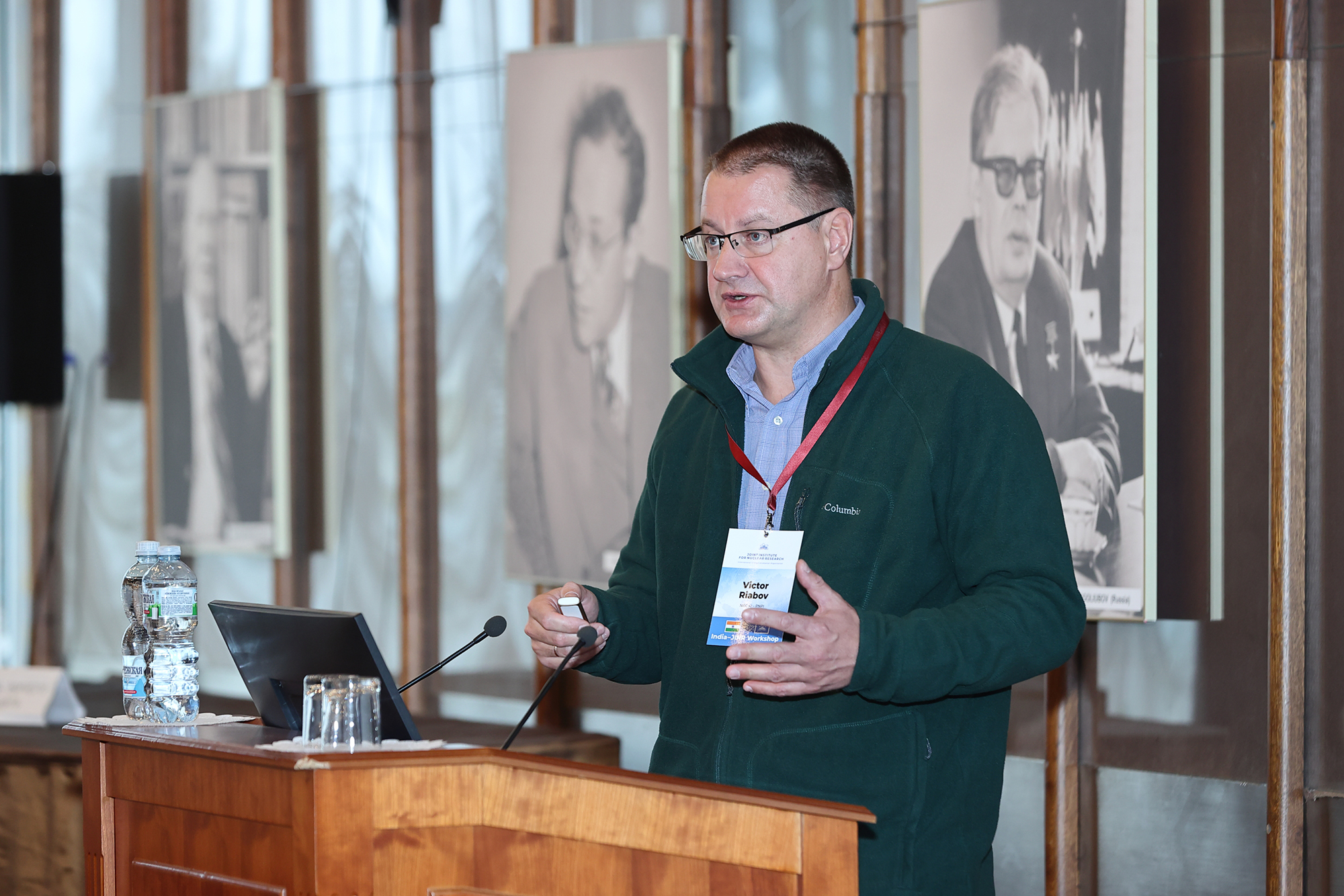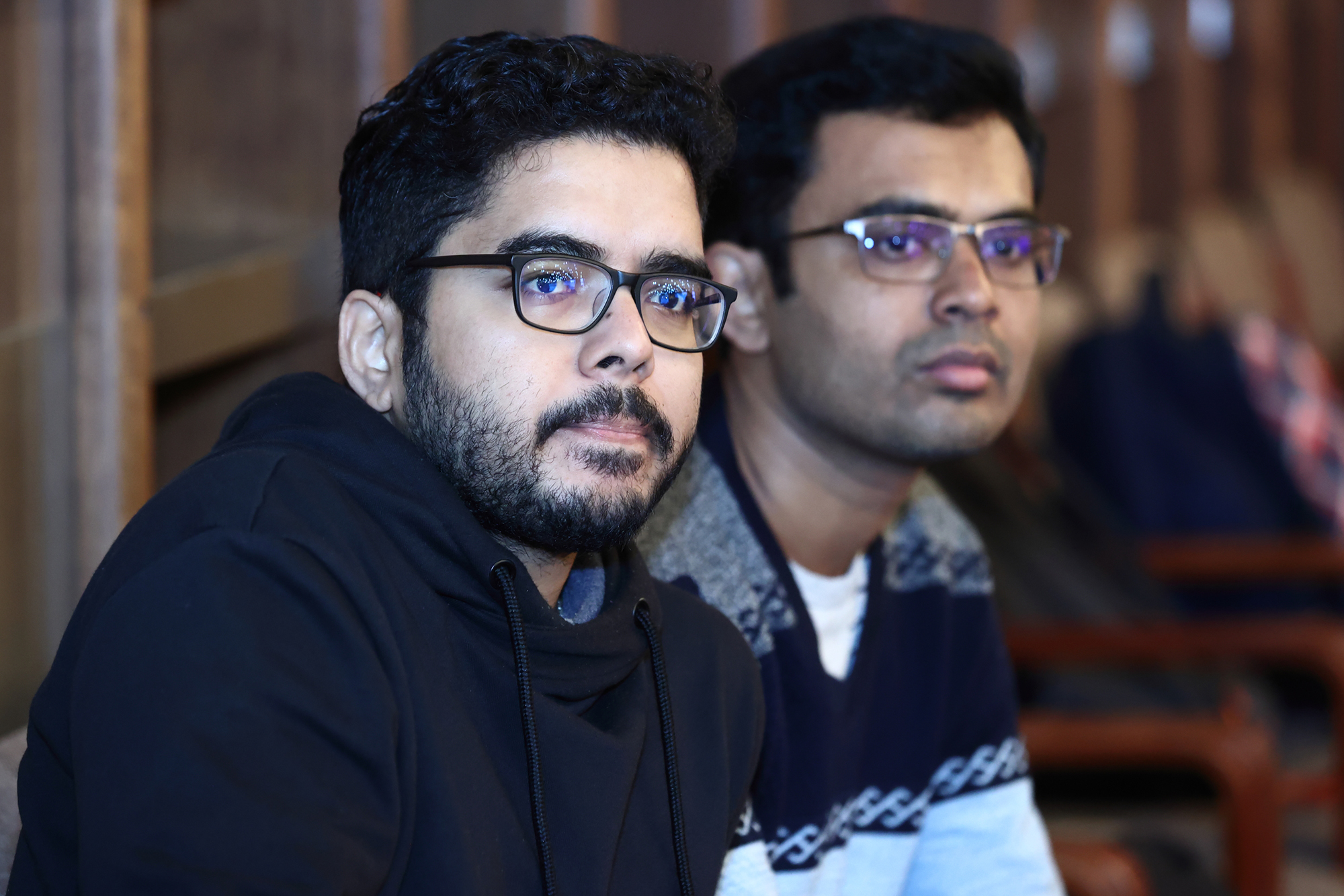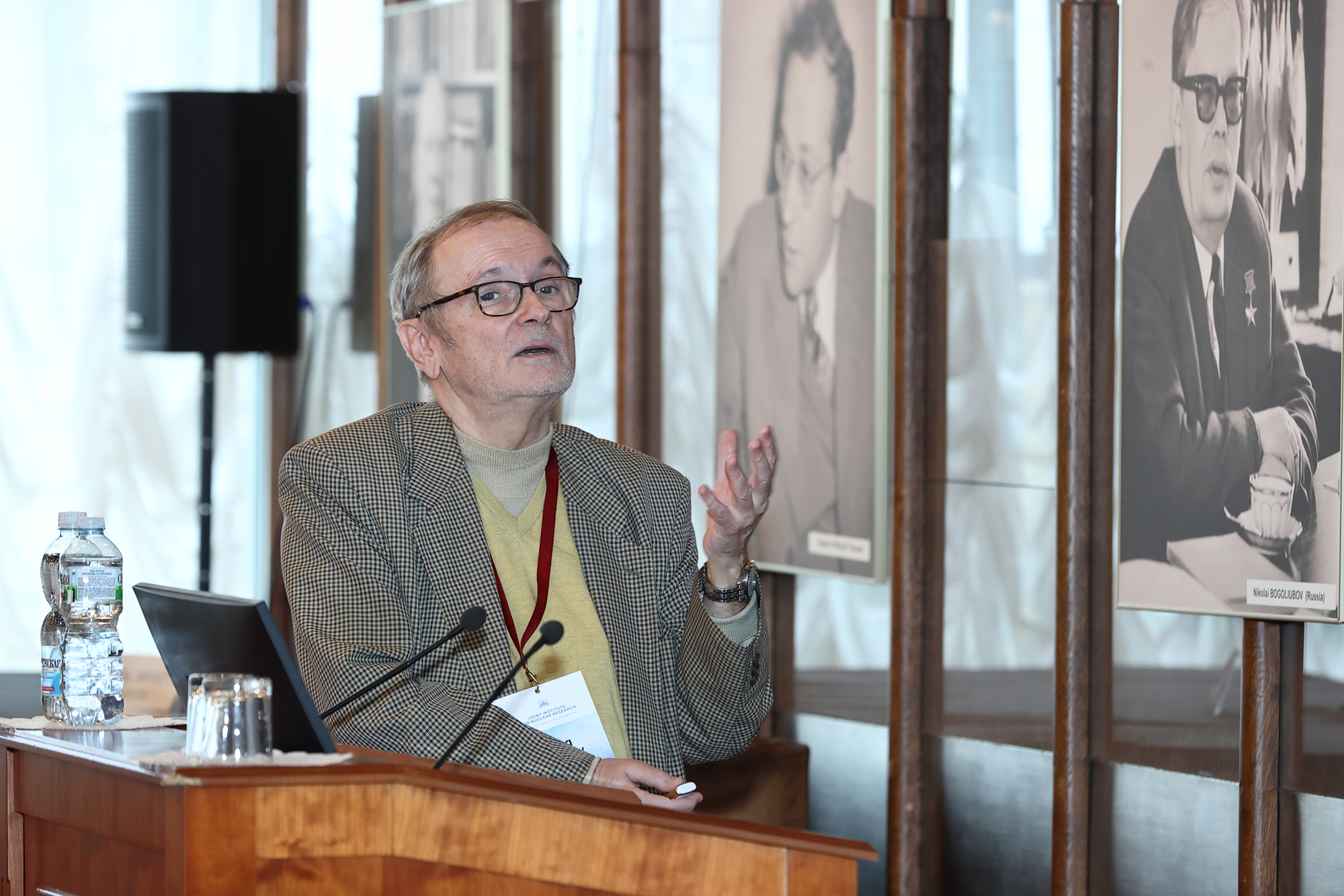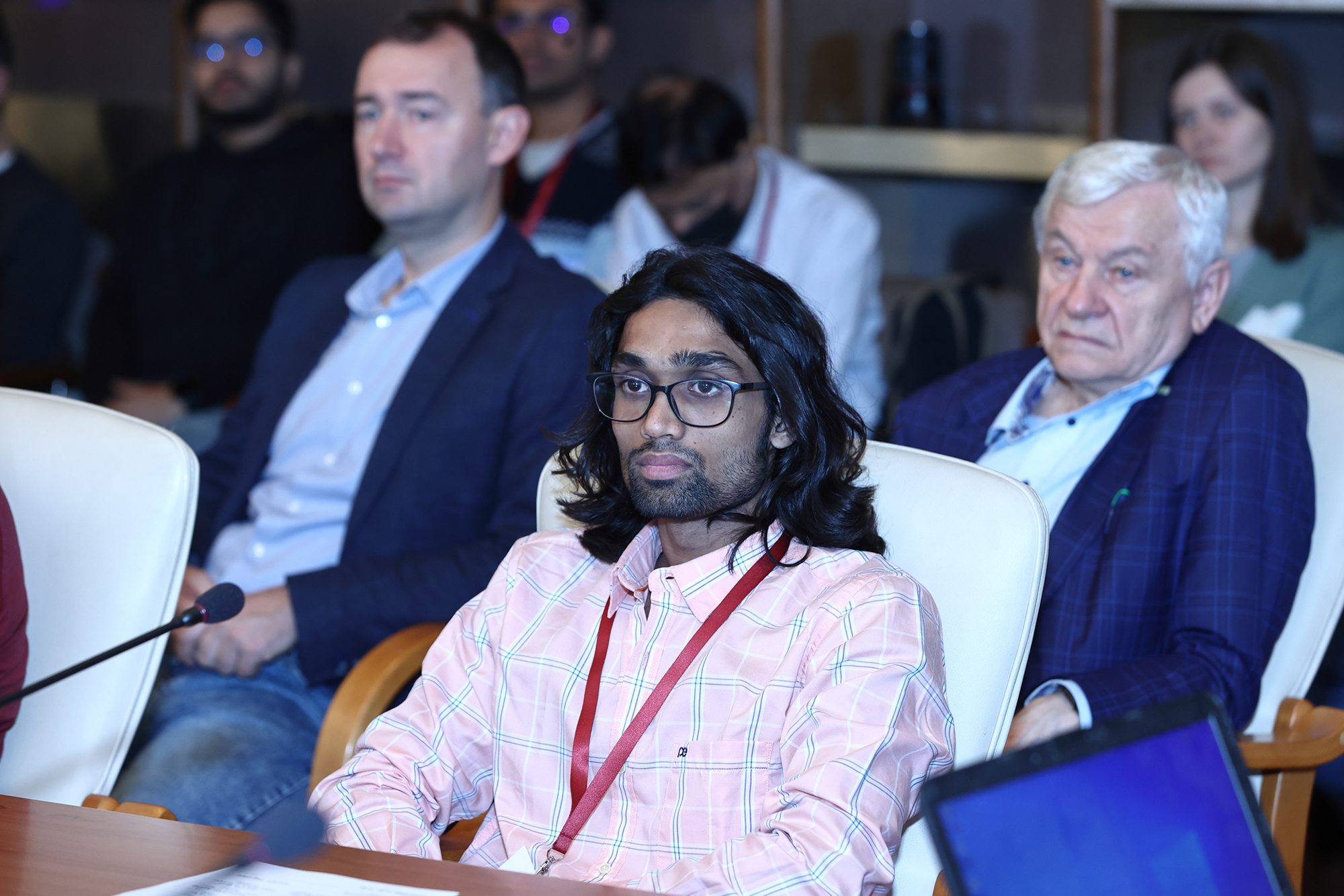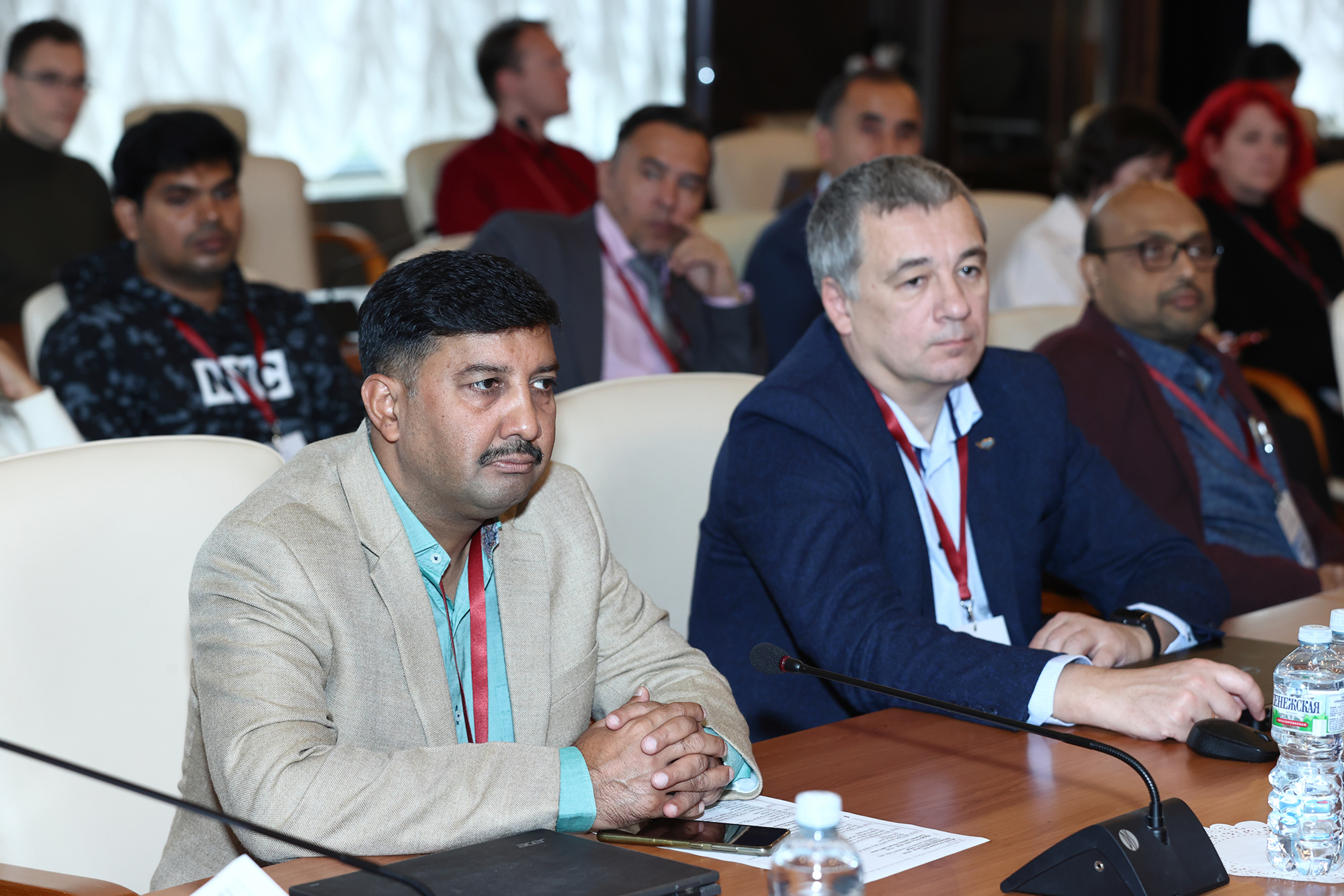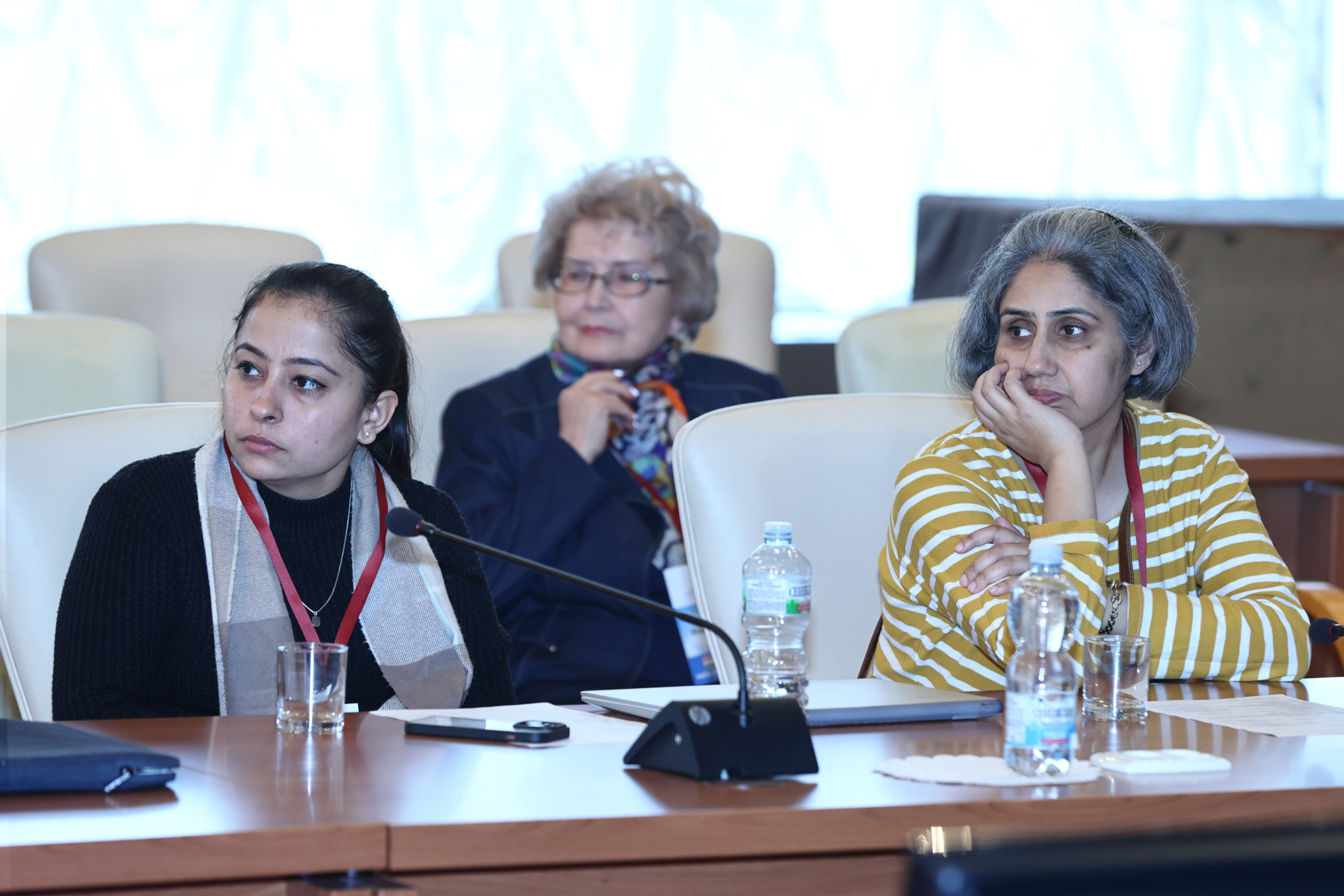Results of JINR-India workshop on elementary particle physics, nuclear physics, and condensed matter physics
News, 30 October 2023
The Joint Institute for Nuclear Research organized the India-JINR scientific workshop on elementary particle and nuclear physics, and condensed matter research. The goal of this multidisciplinary workshop was strengthening cooperation and furthering scientific exchange among the scientists and PhD students from India and the JINR in various research areas of interest.
This four-day hybrid (both online and offline) workshop, beginning on the 16th of October, 2023 covered the theoretical and experimental aspects of the studies of particle and nuclear physics, condensed matter physics, nuclear methods in life sciences, material science, IT, and some other related areas.
The workshop received an overwhelming response from both the sides, and there were 202 participants. 128 participants were affiliated to Indian institutes like VECC (Kolkata), TIFR (Mumbai), NISER (Bhubaneswar), IITs (Delhi, Bhilai, Bombay, Indore, Kanpur, Madras), NITs (Jalandhar, Patna), universities (Delhi University; Panjab University; Banaras Hindu University; Cotton University, Assam), degree colleges, and many other educational institutions representing almost every geographical region of India.
In 4 days, there were 87 presentations, 57 of which were by Indian participants.
Various topics of mutual interest were discussed during the workshop. There were several keynote presentations by the Indian speakers (spin polarization as a signal of critical point by Jan-e Alam, VECC, Kolkata; Understanding the for-mation of a deconfined medium in small collision systems at the Large Hadron Collider by Raghunath Sahoo, IIT Indore; Quark matter under magnetic field by Sourav Sarkar, VECC, Kolkata; Production cross-sections of heavy quarkonium states in magnetized strange hadronic matter at finite temperature by Amruta Mishra, IIT Delhi; Relativistic spin-(magneto)hydrodynamics by Amaresh Jaiswal, NISER, Bhubaneswar). These fields are also of interest as far as the physics related to the NICA project is concerned.
Bipul Bhuyan from IIT Guwahati discussed Deep Underground Neutrino Experiment (DUNE): possible Indian collaboration with JINR on detector development.
Other important topics covered by the Indian speakers include small-x physics (Exploring gluon TMDs at electron ion collider by Asmita Mukherjee, IIT Bom-bay), Low-energy nuclear physics (Light, Large & Lustrous: The many accom-plishments of Digital INGA @ VECC by Sandeep Ghugre, UGC-DAE CSR, Kolkata; exploring fission valleys of HE and SHE by Tilak K. Ghosh, VECC, Kolkata; Heavy-ion fusion and fission study at the low energy region by Mou-mita Maiti, IIT Roorkee), and condensed matter and materials science (Non-linear hall effect by Kush Saha, NISER, Bhubaneswar; Biochemical and Biophysical Characterization of Synthetic anti-VEGF Antigen Binding Fragment for Treating Wet-AMD and Diabetic Retinopathy by C.N. Ramchand; Controlling the me-chanical and thermal properties of entropy stabilized oxides by intelligent control of cooling rates by Ravi K. N. Vijaykumar, IIT Madras; Utilizing scattering tech-niques for investigating polymers under confinement by Dilip Satpathy, IIT Madras).
On the other hand, JINR speakers discussed the thrust areas of the JINR activi-ties (Status and physics capabilities of the MPD experiment at NICA by Victor Riabov; Influence of relativistic rotation on QCD properties by Victor Braguta; QCD and gravity by Oleg Teryaev; Topical problems of nuclear physics solved at FLNP JINR by Alexander Karpov; Applied research at NICA facility: new gates for cooperation in life sciences, materials sciences and nuclear technology by Oleg Belov; Multifunctional Information and Computing Complex to Support JINR Research by Nikolay Voytishin; Condensed Matter and Nuclear Physics Research at Frank Laboratory of Neutron Physics by Yuri Kopatch; Status of the Baikal-GVD neutrino telescope and selected results by Bair Shaybonov; The Spin Physics Detector project at NICA by Alexey Guskov).
In this workshop, scientists from India and the JINR planned to continue and strengthen cooperation in the field of theoretical and experimental high-energy physics, condensed matter research and low-energy nuclear physics.
